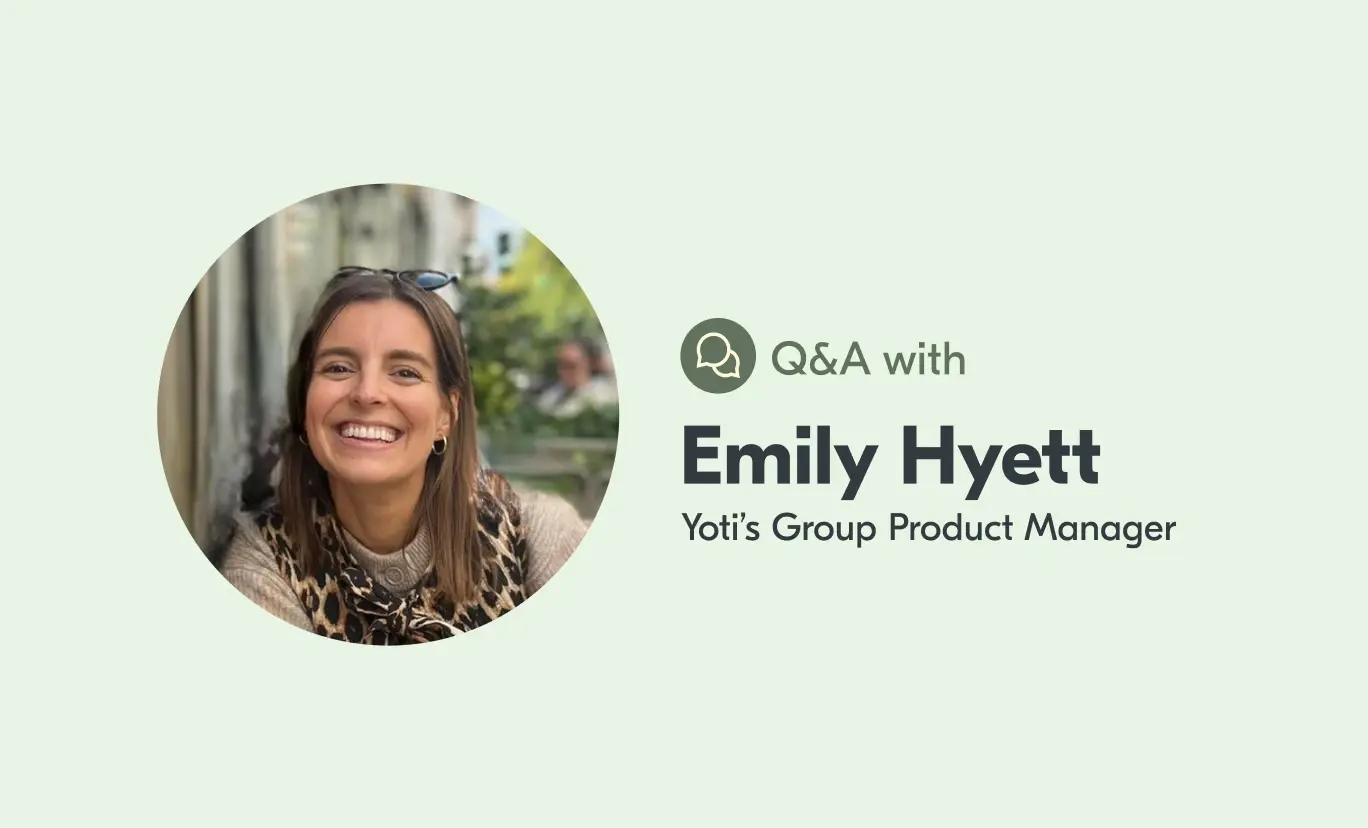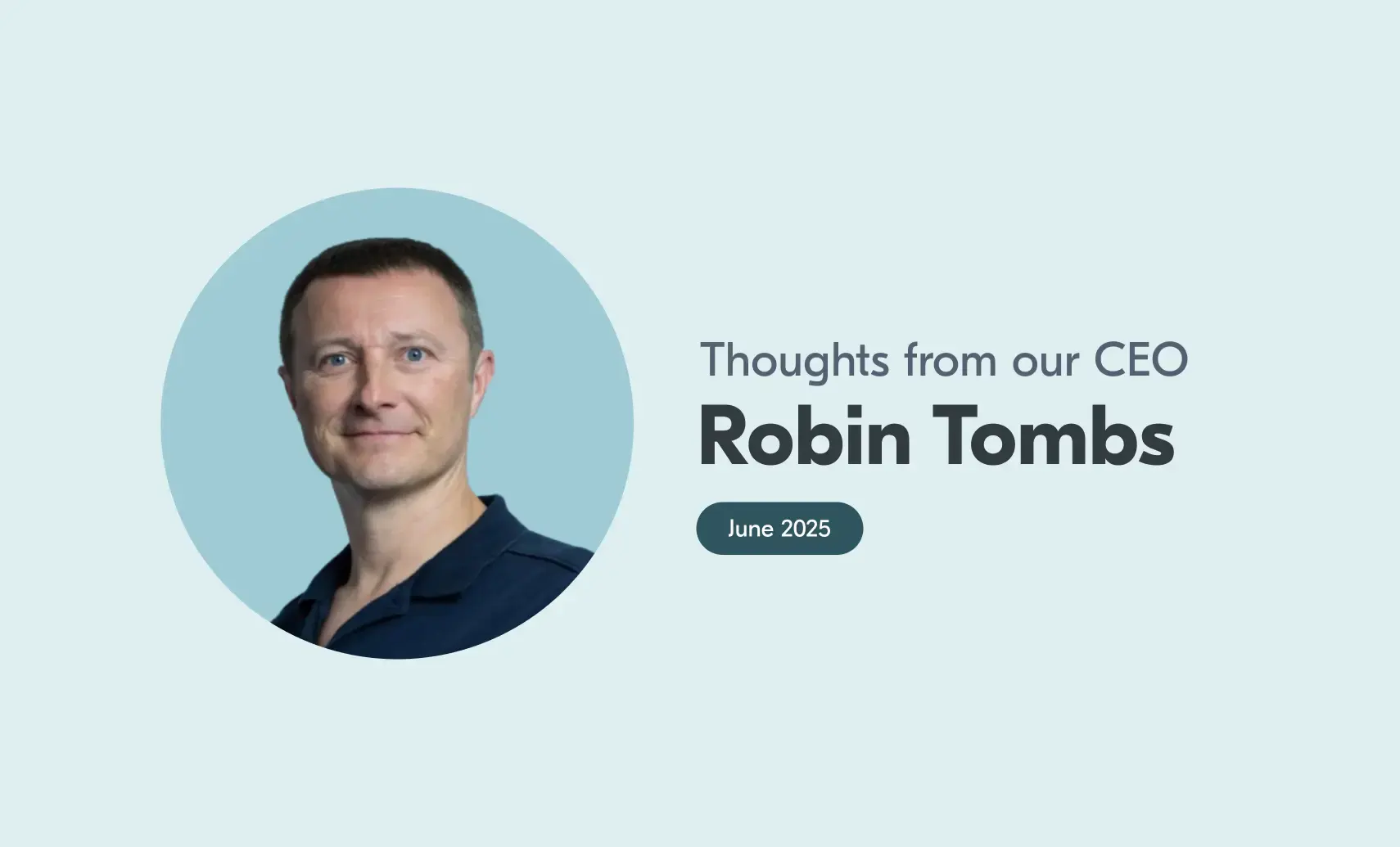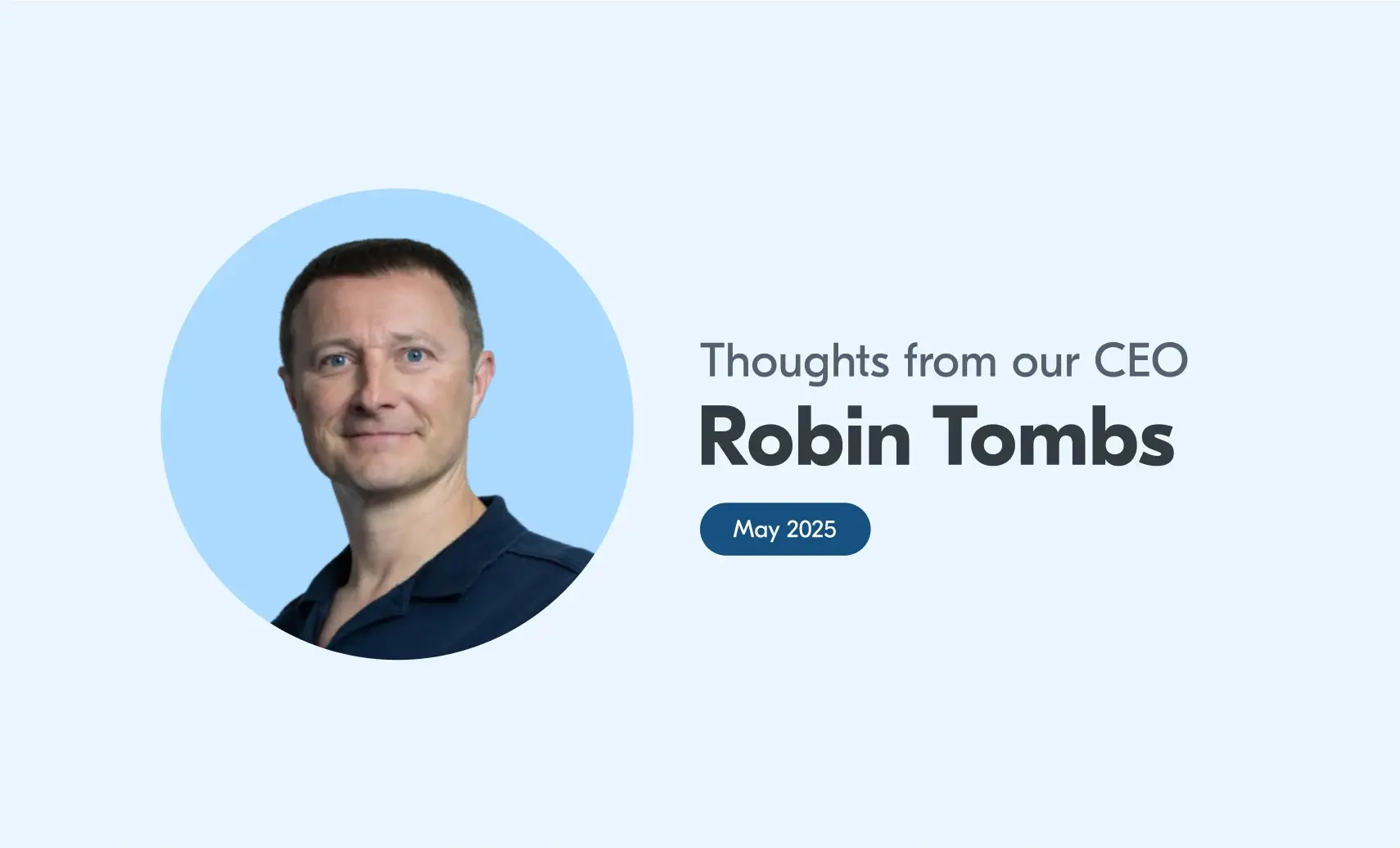
With so much going on in the digital identity space, we caught up with Emily Hyett, our Group Product Manager. She chats through the latest trends in the identity industry, why data privacy is so important, and what her typical day at Yoti looks like.
Can you share your personal journey and the path that led you to Yoti?
I studied Astrophysics at university, and then my first role was working in a tech consultancy. We worked with the UK government to help them digitise the biometrics they used across policing. So I went to about 30 different police forces around the UK shadowing officers to understand how they capture fingerprints at the scene of a crime, capture facial images in custody suites and DNA and then digitise that. We developed their digital processes to allow them to upload the information faster, to be able to share it with other UK and international bodies.
I then worked in the child protection space looking at how Multi-Agency Safeguarding Hub (MASH) teams can be more proactive in sharing data around vulnerable children. So rather than waiting for red flag events and responding, they use the data they have across multi agency departments to be able to step in and act before serious events take place. I found it really interesting to see how tech could be used for good. Alongside this I did a stint at a tech startup in Nairobi building an app.
Following this, I worked on the EU Exit app and the tech that was used in the Afghanistan and Ukraine Visa schemes. This included liveness technology, passport chip reading, and facial matching to automatically verify a person’s identity to provide them faster entry to the UK.
All of this experience then led me to Yoti where I’m now Group Product Manager.
What does a typical day at Yoti look like for you?
It’s always a mix but often it will be catching up with product managers of individual teams, running kick off calls for new propositions we’re delivering – whether that’s building a new service for our customers or engaging in EU/UK working groups on new frameworks or policies.
Alongside this I do a bit of research across our products to understand how they’re performing and what we should strategically be focusing on and how to deliver the most value to our customers.
What advice would you give to someone aspiring to become a product manager?
Get comfortable being uncomfortable. You’ve got to be able to work with rapidly changing priorities and have good communication skills, both understanding customers and more technical language. It helps if you can specialise in a particular industry.
I’ve worked in digital identity for 10 years so knowing the different international frameworks and policies has definitely benefited me.
What major trends or shifts have you observed in the industry over the years?
It’s impressive how much has changed since I started. We know that the EU will mandate digital identity in eIDAS 2.0 and many countries and several US states are already issuing digital driving licences which can be used as proof of age.
The main thing is for users to have more control of their data. If you want to share that you are over 18 and can legally buy alcohol it doesn’t mean that you should also share your name, date of birth and your address (which is what you essentially do now when you show your ID to someone).
A Digital ID allows you to share that you’re over 18 without sharing any other personal details. This is something we’re very focused on at Yoti but over time, more people will start to demand this too.
We’re also seeing more regulation around online safety to protect users and create more age-appropriate experiences.
How do you approach data privacy in the product development process?
It’s really in the core of what we do, partly as a B Corp but also as one of our principles. All our designs and solutions go through our privacy and trust checks as part of our product definition documentation.
We also have a Trust and Ethics committee and a Guardian Council who provide further input to ensure all new functionality aligns to our ethical framework. Our Guardian Council is formed of an independent board of advisors from careers in sectors such as human rights, data privacy and last mile tech.
What are some of your favourite technologies at Yoti?
NFC chip reading allows us to extract and read the chip in a passport. So if you’re creating your Digital ID with a passport, you can place your phone on the passport and we can extract the information from the document. This also allows us to ensure the passport is genuine.
With the rise in deepfakes, we are constantly investing and developing our anti-spoofing tools. This includes our liveness technology which ensures people can’t upload images or videos when completing a verification check. As fraudsters advance, so do we.
Looking forward, what excites you in the industry?
Historically bigger tech companies would own your data. They advertised ‘big data’ as the holy grail.
But there’s been a positive shift towards individuals having more power and control over their own data. Allowing people to keep as much data private as possible is really important. And from a business perspective, they don’t want to store large volumes of data anymore. So the two are becoming more aligned.
Our Digital ID app is architected using pKI technology which means that a user’s data can only be accessed by the user on their own device. They consent to share their information and have more transparency and control over what they share and who they share it with.
Also from an accessibility perspective, digital identity is helping those who may struggle to obtain a physical ID like a passport or driving licence. It helps them to access services they may historically have been locked out of.
If you have any other questions for Emily or the team, please get in touch.



